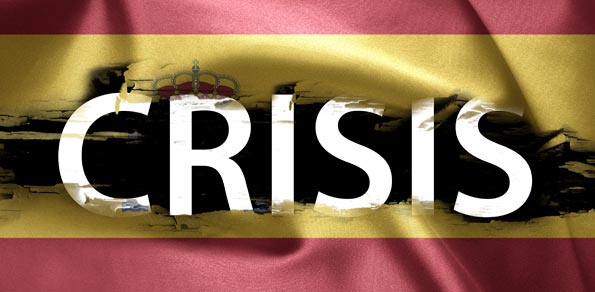Citigroup economist Willem Buiter, warned that Spain may be forced to follow the lead of the Greeks as it is crippled by debt burden.
“Spain is the key country about which I’m most worried,” Buiter said in a report in Bloomberg. “It’s really moved to the wrong side of the spectrum and is now at greater risk of sovereign restructuring than ever before.” At the same time, he warned that Portugal was also at a “very high” risk of a debt restructuring, while Ireland needed “additional official sector support”.
Analysts are worried that countries such as Spain and Portugal will face insurmountable stress as their economies fall into deep recessions, pushing their budget deficits higher and making their heavy debt burdens even harsher. Just a few days ago, eurozone finance ministers agreed to ease Spain’s budget deficit target to 5.3 per cent of GDP this year, compared to the previous target of 4.4 per cent.
International markets have rallied strongly in recent months, after the European Central Bank moved to ease financial tensions in the region by providing more than more than €1 trillion in liquidity. This, Buiter noted, marched straight to:
[quote]a general feeling of near euphoria at the moment which leads those drowning in liquidity to believe that all troubles are over[/quote]
He also warned there was a downside to the ECB’s actions, pointing out that “efforts for recapitalization, in the case of banks, and de-leveraging for governments tend to slacken off” when they no longer face extreme difficulties in funding. The ECB now needs to monitor and control what is has unleashed.
Worries over the latest Greek bailout have been reinforced by a leaked official memo that points out that Athens will have to push through tough labour market and structural reforms for its latest program to succeed. Many believe that Greece will not succeed, once their people have been beaten down as harshly as they have, it will be generations before the country sees growth and productivity. Most investors and market analysts agreed that the bailout only gave the EU time, which might allow the EU crisis to end before Greece resurfaces.
The ‘troika’ – representatives from the ECB, the European Union and the International Monetary Fund who are overseeing the latest Greek bailout warned that attempts to reduce Greece’s debts to sustainable levels were extremely sensitive to delays in implementing structural reforms. According to the memo, delays would threaten the country’s economic recovery, resulting in higher unemployment levels and a deeper recession. The elections are schedule for next month and rest assured the new government which is bound to the austerity measures will be as hasty to implement them.
It was only two months ago that Greece received a payment of €7.5 billion under its second bailout package, which allowed the country to avoid bankruptcy. The markets did breathe a sigh of relief this week when the March 20th deadline passed without a Greece default. Odds makers were just a few months ago making book that Greece would default.





